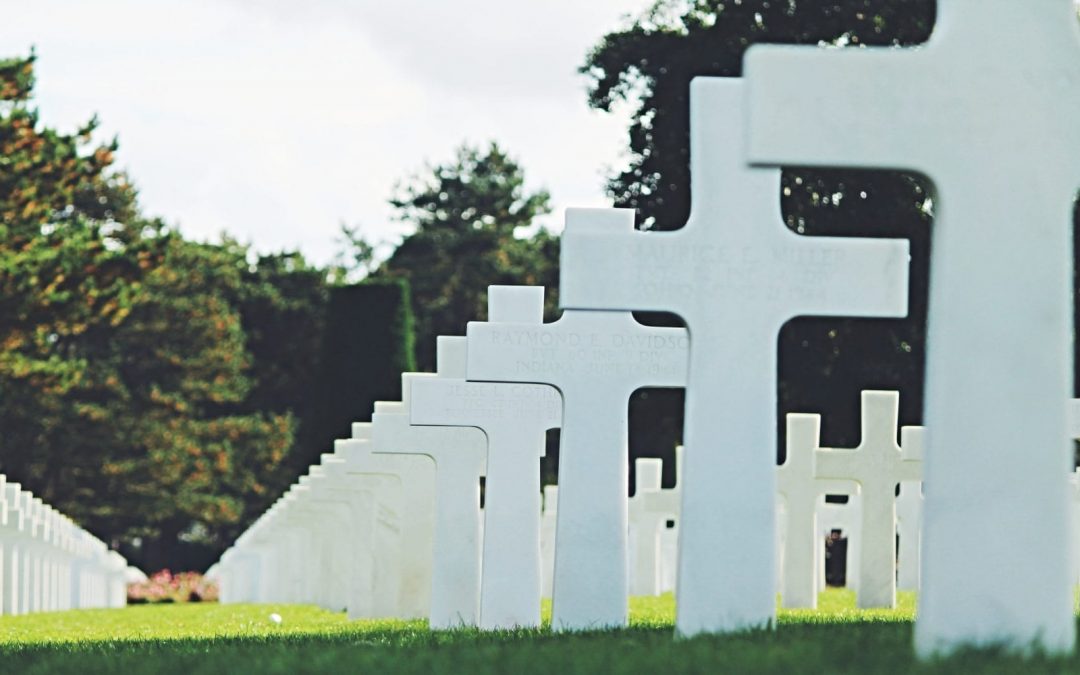Second Baptist Church of Little Rock, Arkansas, placed 237 white crosses on the lawn by its parking lot in late September.
We did so to honor the memory of the victims of the Elaine Massacre, which occurred 100 years ago.
Along with the crosses, there was a sign which read, “Remembering the Victims of the 1919 Elaine Massacre and recommitting ourselves to a future of justice, mercy and peace.”
Our intention behind this project was that this sign and these crosses would help us remember our past and learn the lessons it has to teach us while also propelling us into a better and brighter future.
The Elaine Massacre remains one of the worst acts of domestic terrorism our country has ever seen.
On Sept. 30, 1919, approximately 100 African Americans, most of whom were sharecroppers, gathered in a church in Hook Spur, three miles north of Elaine, Arkansas, to discuss how they might advocate for higher prices for their cotton crops from their white plantation owners.
In the Jim Crow south, the plantation owners often exploited the labor of the sharecroppers with unjust payments upon the harvest.
The leaders of the sharecroppers’ union also stationed three security guards outside the church to prevent any disturbance to their gathering.
A shootout began that evening, leaving a white security officer dead and a white deputy sheriff injured.
The next morning, the Phillips County Sheriff’s Office deployed a party to arrest those thought to be involved in the shooting.
However, word quickly spread up and down the Arkansas and Mississippi Delta of a purported “insurrection” in Elaine.
Over the next several days, somewhere between 500 to 1,000 armed white men traveled to Elaine and began massacring blacks in the area.
On Oct. 1, Phillips County authorities sent telegrams to Gov. Charles Hillman Brough, requesting U.S. troops be sent to Elaine.
These troops left Camp Pike in Little Rock and arrived in Elaine the next day. However, evidence suggests that these troops continued the racial violence rather than help end it.
In the end, an estimated 100 to 237 African Americans died in the massacre (a full accounting was never performed and many victims fled elsewhere).
In the weeks, months and years that followed, 285 African Americans were arrested and 122 were charged with crimes.
The first 12 were found guilty and sentenced to death in sham trials, which led 65 others to take plea bargains.
Scipio Jones, one of the leading black attorneys in Little Rock, represented these clients and, through a variety of legal means, achieved their release on Jan. 24, 1925, over five years after the event.
No white person was charged with any crime.
For more information, you can read about the event here and here.
Some people might wonder why we are remembering such an event, thinking this sort of history is best left forgotten. But it’s not.
Our brothers’ and sisters’ blood still calls to us from the ground, and those who forget their history also lose their capacity to dream of an alternative future, much less work toward one.
Elaine still has many lessons to teach us, which might include:
- Sometimes, the justice system is inherently unjust, and at that point it must be called into question by all people who care about justice and equity.
When justice is blind in the worst sort of way, people of the light must help it see again.
Today, there are more African American men in prison than were enslaved at the beginning of the Civil War.
If one doesn’t believe that black people have some innate propensity for crime (which would be racism at its finest), one has to conclude that the system has worked against black folks for decades now and must be made right.
Remembering Elaine rightly demands that we ensure our justice systems are just today.
- So long as we prize profits over people, justice and peace will escape us.
So long as our highest calling is to the bottom line, our morals will rush downward as well.
People will be seen as tools with a pulse rather than humans who bear the image of God, and we will seek divine sanction for our human exploitation.
Remembering Elaine rightly demands that we value people over profits.
- Anger, ignorance, bigotry and lies create the breeding ground for violence.
Jesus said that hatred in the heart is the precursor to violence. Massacres result when people don’t tend to the animus in their souls.
When people refuse to deal with racial injustice because the price is too high, one will be forced to deal with the price of not addressing it, which is a higher price still.
Remembering Elaine rightly demands that we not only mourn and lament the violence that occurred a century ago, but that we also seek the things that make for God’s peace – namely, justice, mercy and love.
In the Psalms, lament is a form of worship. It is a way of saying to God, “The world is not as you made it to be, and we refuse to quietly accept the dissonance.”
Through a Wednesday night series looking at race and racism in our community and our remembering of the Elaine Massacre, we are seeking to lament what has happened, repent of our complicity in the racial injustice of our day and pledge ourselves to a brighter and more faithful future.
We’re remembering our history so that we can dream of a different future. May it be so.
Editor’s note: A version of this article first appeared on Second Baptist of Little Rock’s blog. It is used with permission.


